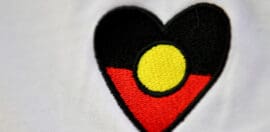2021 budget fails to close the gap

12 May 2021 at 11:48 am
“This is a budget that entrenches the inequalities and injustice of the past”
First Nations advocates have condemned the 2021 budget as failing to live up to the government’s talk of “closing the gap”.
While Tuesday’s budget included investments in a number of health initiatives, there was a lack of investment in First Nations-focused services including family violence prevention services; investment to address the crisis of Aboriginal deaths in custody; and investment to ensure Aboriginal and Torres Strait Islander children and families have access to the support and services they need.
Australia’s only First Nations-led justice coalition, Change the Record, said the budget just entrenched more of the same.
On the issue of justice, Change the Record co-chair Cheryl Axleby said it was “shameful” that after seven deaths in less than two months there has been no plan from the government to address the crisis of Black deaths in custody.
“There is no funding in the budget to address the mass-incarceration of First Nations peoples by establishing a National Justice Reinvestment Body (despite this being a key recommendation) and no funding to support states and territories to Raise the Age to keep primary school aged children out of police and prison cells,” Axleby said.
“This is not a budget for the future, this is a budget that entrenches the inequalities and injustice of the past.”
NATSILS chair Priscilla Atkins, said given the alarming rates of over-incarceration and Aboriginal deaths in custody, it was more important than ever for Aboriginal and Torres Strait Islander Legal Services to be properly resourced and accessible across Australia.
“Aboriginal and Torres Strait Islander Legal Services are already suffering from a demand we cannot meet due to substantial delays and understaffing,” she said.
“More funding and job-creation for ATSILS means that Aboriginal and Torres Strait Islander people can access culturally safe legal support when and where they need it, which supports our communities and reduces the over-incarceration of our people.”
The budget did include more than $700 million to improve health and ageing outcomes for Aboriginal and Torres Strait Islander people. This included better mental health services including culturally appropriate aftercare and 24/7 crisis support, strengthened primary health care for Indigenous Australians and improved access to quality aged care services.
The budget also included $57.6 million for targeted measures to address violence against Indigenous women and children, including funding for legal services, a dedicated survey and improving the quality, capability and cultural safety of family violence services.
However, advocates criticised the government for failing to meet the crisis of family violence against First Nations women with the funding needed to keep Aboriginal and Torres Strait Islander women safe.
Change the Record co-chair and chair of the National Family Violence Prevention and Legal Services Antoinette Braybrook said they had been clear that to provide crucial front-line services that women need, their 14 family violence legal prevention services require an additional investment of at least $28 million per year.
“The 2021 budget delivers less than a quarter of that vitally needed funding, and contains no dedicated funding for our National Family Violence Prevention and Legal Services Forum, denying First Nations women a voice shaping the policy decisions that affect our lives,” Braybrook said.
SNAICC CEO Catherine Liddle said more was also needed to achieve the ambitious targets for children in the National Agreement on Closing the Gap.
“The government must invest more in quality early education and care, scrap the ‘activity test’ and remove barriers to ensure access to 30 hours of free or heavily subsidised care for our children each week,” she said.
“In line with the National Agreement, funding must go to Aboriginal and Torres Strait Islander community-controlled early childhood and family support services that are best placed to provide quality and culturally safe services for our families.”
Further targeted measures to Close the Gap are expected in the Commonwealth’s Implementation Plan, set for release mid-year.







